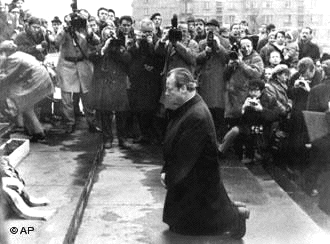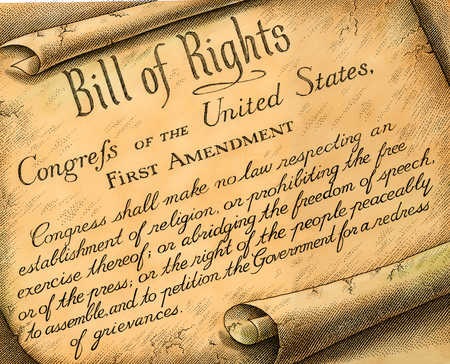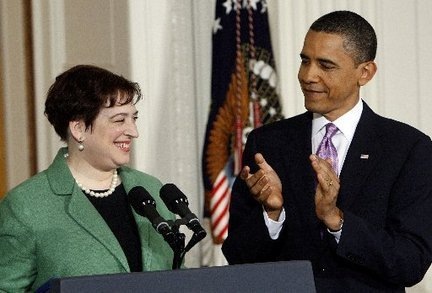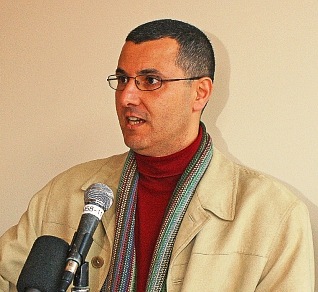I have written previously about those who claim to be friends of Jews, for example Islamophobes, House Democrats and Republicans, talk show hosts, and Christian Evangelicals, but who (if you scratched them) would probably show a different color underneath their paint job. In Germany, as in the United States and even Israel, there is often quite a difference between having truly learned the lessons of the Holocaust and providing mere lip service. In Germany there are many who utter all the right words but — scratch the surface — and you discover a garden variety anti-Semite. There’s even a name for this phenomenon: Philosemitism. The following is my translation of a recent analysis by a German Jewish blogger. It’s important to watch Europe because the degree of its anti-Semitism and Islamophobia is just a preview of what we can expect to be seeing here shortly. And the discussion of Philosemitism is one we should be having as pro-Israel organizations increasingly are sleeping with people who are anything but the friend of Jews.
How do you discredit a woman and turn her into a “controversial” scholar? Another example of how anti-Semitism works.
Tamar Amar-Dahl is a historian who emigrated from Israel. Like many young Left or liberal Israelis, she left Israel and, in 2006 in protest against the Lebanon War, surrendered her passport in exchange for German citizenship. Now Tamar Amar-Dahl has found herself in the crosshairs of Anti-Semitism researcher Clemens Hani.
You have to wonder what motivates Henri’s attack on Amar-Dahl. Is it envy from an unsuccessful political scientist whose best effort is the occasional article in Ha’galil, and who couldn’t manage to get a teaching position as Amar-Dahl did last year at Humboldt-University in Berlin? What leads Clemens Heni, the “Aryan with the oversized nose for anti-Semites” (Posener) to fling dirt at a young political scientist? Is it “only” political differences? Or is it possibly animosity toward people of Jewish ancestry who just don’t fit into Clemens Hani’s preconceived notions of how to be Jewish?
In a pamphlet published a few days ago attacking Amar-Dahl, Heni writes:
“Dr. Tamar Amar-Dahl received her doctorate in 2008 in Munich at the Ludwig-Maximilians-University for work on Shimon Peres. She is a highly controversial political scientist and activist.”
Why Amar-Dahl is “highly controversial” remains Heni’s little secret. In reality he’s less interested in performing after-the-fact “quality control” on political science than in cobbling together conspiracy theories of “anti-Zionist machinations” at German universities, in which he takes on any political scientist who had anything remotely to do with Amar-Dahl — beginning with Prof. Dr. Stefanie Schüler-Springorum, the director of the Institute for History of German Jews in Hamburg, who had the temerity to invite Amar-Dahl to a lecture; to the director of the Institute for Contemporary History in Munich, Prof. Dr. Horst Möller, who together with Prof. Dr. Moshe Zuckermann from Tel Aviv, had supervised Amar-Dahl’s dissertation; to Prof. Dr. Christina von Braun, the director of the newly-established College of Jewish Studies in Berlin, where Amar-Dahl recently accepted a teaching position.
Yes, our relentless little denunciator, Clemens Heni, didn’t even stop with Hans Mommsen, who has praised Amar-Dahl’s work. Don’t forget: Mommsen is without a doubt one of the most internationally well-respected historians of National Socialism and the Holocaust, but Heni nevertheless paints him as “no expert on anti-Semitism.” Apparently those in Heni’s circle still hold a grudge against Mommsen for refuting the Goldhagen hypothesis in 1996 and in so doing discrediting Heni’s great role-model in all things relating to anti-Semitism research.
And so, with his big detector he sniffs at any fart in order to breathe it in, eyes wide open. Even Amar-Dahl’s former supervisor, Prof. Dr. Michael Brenner, was quoted, and Heni apparently phoned around looking for new critics in Munich. In the end he reveals to an incredulous public that Amar-Dahl was not all that serious because she based her work on the theories of Edward Said and even published them in a periodical which reprinted materials from the “anti-Israel agitator” Noam Chomsky. A collection of “facts” that basically just makes you shrug and which ultimately says less about Tamar Amar-Dahl than it does about Clemens Heni. Because the only one who seems to be shocked and stunned is the great sniffer himself.
A bewildered Heni asks:
“Didn’t the faculty of the Institute for the History of German Jewry know who Tamar Amar-Dahl is, how unscientific (sic!) she works, and what she represents?
[…]
Why is Humboldt University funding an anti-Israeli academic?”
Not even Heni is stupid enough to accuse Amar-Dahl of “secondary anti-Semitism” for her remark at an FES [Friedrich Ebert Foundation] conference, where she said:
“I’m shocked that, once again, the subject of the Holocaust and the Jews is — as they say — being replayed and regurgitated here. Sometimes I feel it’s just way too much.”
A quote taken completely out of context — but quite a find for “sensible anti-Semitism researchers,” as Clemens Heni is: is someone who would now accuse the daughter of Moroccan Jews of being an anti-Semite because she — especially as a Sephardi Jew — apparently was not personally as affected by the destruction of European Jewry as the Ashkenazim who survived. In whose personal lives persecution and destruction do not happen to play a more significant role. Almost every family lost relatives or friends — in contrast to most Sephardim or Mizrachim. Such different experiences, which form an individual and are passed along to his children as well as current acquaintances — all this leads Heni to hate the young political scientist.
A person of Jewish faith or ancestry has to match the Jew in Clemens Heni’s mind. And if he doesn’t, he’s bound to invoke the personal animosity of this “Philosemite.” This in a nutshell is the dangerous side of Philosemitism. Just as he has an exaggerated sense of everything Jewish as positive, he threatens to revert to raw hatred when individual Jews or people of Jewish ancestry simply don’t conform to the image he has fantasized.
I have to admit: for a long time I didn’t understand how this kind of Philosemitism really worked. I always thought that it expressed itself in extreme forms of classical anti-Semitism. That someone — even one claiming to be a “friend” of Israel and of Jews, could suddenly become disappointed in some imaginary, only in his own head, with a collective notion of “the Jews” — and then erupting into raw hatred. Precisely against a “collective” Jew whom he had once regarded as infallible. But the real — at least more typical — Philosemitism is even more insidious. It does not direct its type of anti-Semitism at the collective itself; rather, it selects a specific group: those who are in some way not “Jewish” enough, as Philosemites have defined it. He is disappointed in them and he directs his hostility at these “disrupters” of his own picture of Jewry. Precisely this, no difference, is how it works with Clemens Heni: a person of Jewish ancestry who commits the crime of not being “like a Jew should be” can be nothing other than an anti-Semite. Sure, what else can it be, Heni? Of course! But the worst thing is: there will always be more! More and more anti-Semitic Jews. Pretty soon you won’t be able to see Israel because of all the anti-Semites.
That’s why this type of Philosemitism is not the opposite of anti-Semitism, as one might be led to believe. Portraying it as simply the opposite, as positive racism, makes it seem harmless. Because if it is really the opposite of anti-Semitism, it can’t be all that dangerous: it doesn’t result in the destruction of an enemy. But it works another way. This specific form of anti-Semitism doesn’t target Jewry in its entirety, opposing “the” Jews. At least not directly. Philosemites like Heni reserve their worst attacks for those who disappoint them. For these they reserve the most awful portrayal they can think of — which for Philosemites with their moral categories is: to be an anti-Semite.
This is the real hatred of the Philosemites. The moment in which his understanding of Jews leads to disappointment, he targets — not collective Jewry — but “anti-Semitic Jews” whom he equates with them — as enemies whom ultimately he’d like to see wiped out. Admittedly: Heni has gone easier on Amar-Dahl than Alex Feuerherdt. Meanwhile, the latter insults Jews as openly as anti-Semites. But according to Heni it’s only a “secondary anti-Semitic response.” But they mean the same thing.
This is exactly why it’s often not enough to check one’s “facts” in the case of people like Tarach, Feuerherdt, or Heni. Because (historical) proof doesn’t even occur to them. Refute one of their assertions; they’ll just find a new one in order to legitimize their attacks. You can’t address such people with empirical data alone. We also have to expose their followers for what they are: just garden variety anti-Semites, cloaked in fleece as “friends of the Jewish people.”
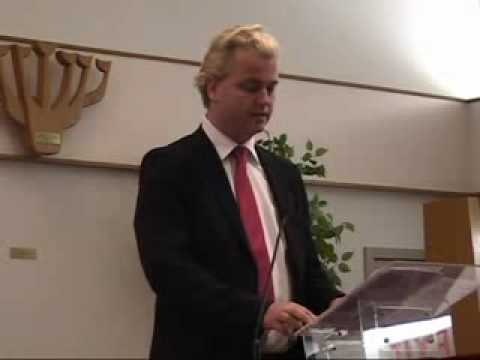
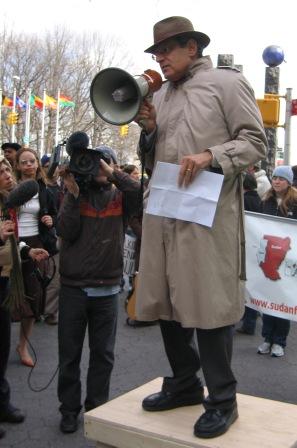

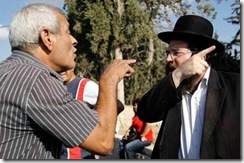


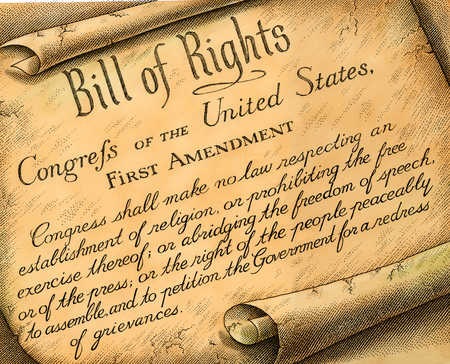







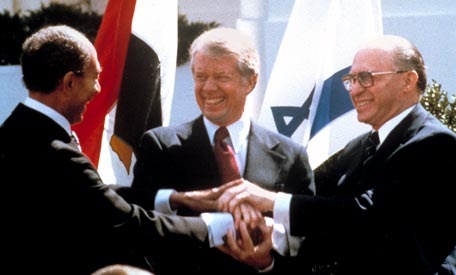






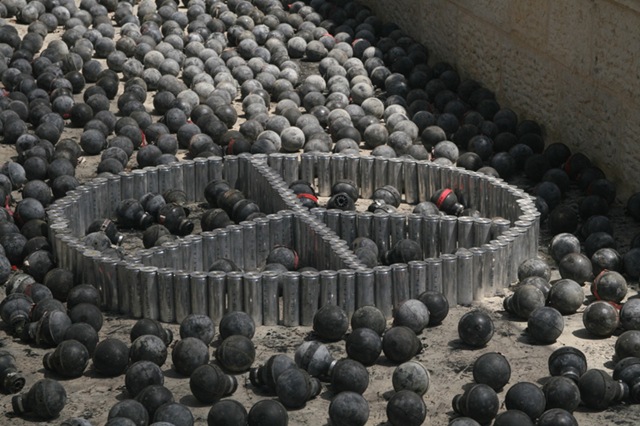







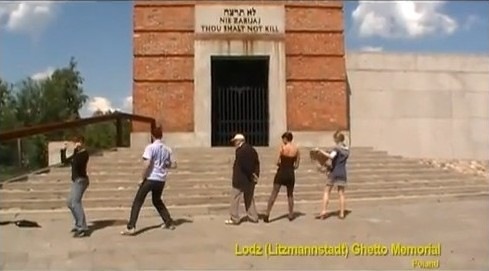


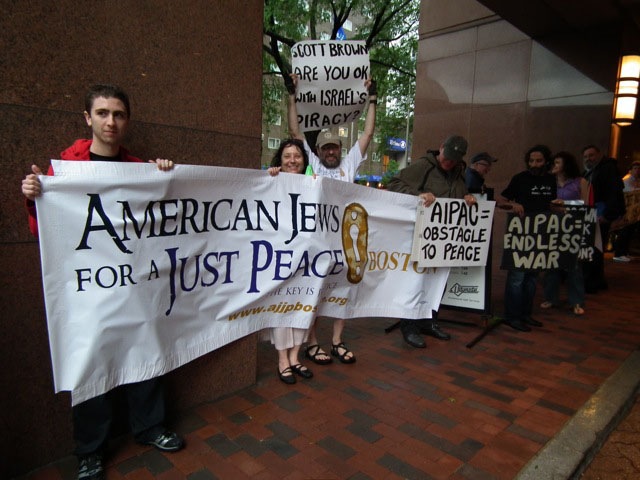
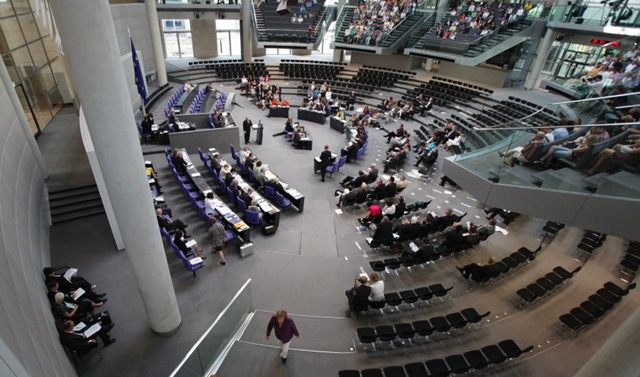
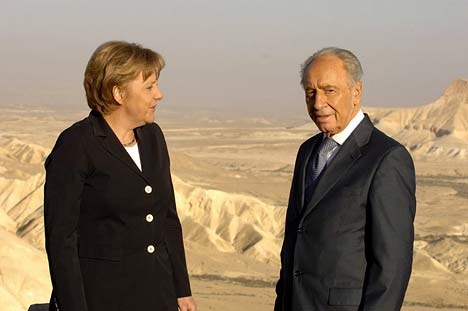
 Since the war Germans have paid reparations, introduced Holocaust curriculum into education, and each government since 1965, when diplomatic relations between Israel and Germany were restored, has strengthened the relationship between the two countries. Holocaust denial violates German law. German presidents have visited Yad Vashem, knelt in supplication at the site of the Warsaw uprising, and pursued a policy of repeated apologetic gestures toward the Jewish state. As
Since the war Germans have paid reparations, introduced Holocaust curriculum into education, and each government since 1965, when diplomatic relations between Israel and Germany were restored, has strengthened the relationship between the two countries. Holocaust denial violates German law. German presidents have visited Yad Vashem, knelt in supplication at the site of the Warsaw uprising, and pursued a policy of repeated apologetic gestures toward the Jewish state. As 